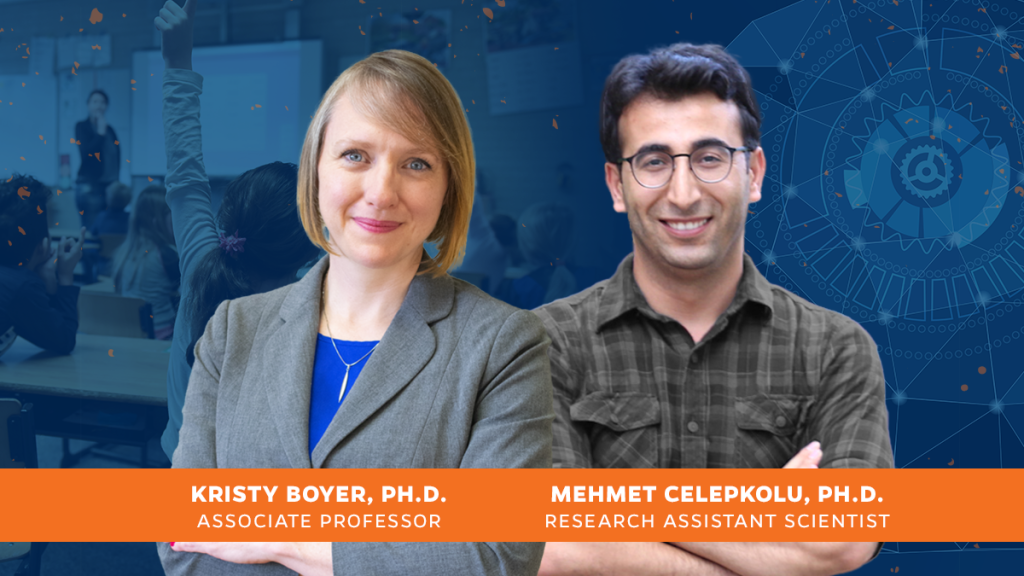 Researchers from the University of Florida were recently awarded a grant from the National Science Foundation (NSF) to explore how to integrate AI learning into middle school science through natural language processing (NLP). Investigators will work with teachers and students at middle schools in Florida and Indiana.
Researchers from the University of Florida were recently awarded a grant from the National Science Foundation (NSF) to explore how to integrate AI learning into middle school science through natural language processing (NLP). Investigators will work with teachers and students at middle schools in Florida and Indiana.
The project team includes the principal investigator Kristy E. Boyer, Ph.D., an associate professor in the Department of Computer & Information Science & Engineering (CISE), and co-principal investigator Mehmet Celepkolu, Ph.D., a CISE research assistant scientist. The researchers will collaborate with teachers and provide potentially transformative experiences to several teachers and over a thousand students. The two-state effort will focus on diverse schools with approximately 50% African American students with the majority of students eligible for free or reduced lunch.
“This work will break new ground in AI education for K-12,” Dr. Boyer said. “By working with natural language data (text and conversations) that are available at a large scale on the web, teachers and learners will be able to ask scientific questions and explore data using AI.”
The project will research how to teach NLP with ethics and ethical reasoning applied to relevant local issues and investigate how to integrate AI learning through NLP into middle school science on weather systems and cycles through problem-based learning.
Researchers will investigate a series of questions using qualitative data from teachers and students, which will include narrative accounts, observations of teaching practices, and interviews with teachers about their preparedness and self-efficacy for teaching AI-integrated science, as well as quantitative data, which will include knowledge and skills assessments for AI-integrated science administered to both teachers and students.
After three years, the team plans to produce empirical findings and innovative NLP tools and strategies that will integrate into Next Generation Science Standards. The tools and strategies will be the outcome of iterative refinement over the duration of the project through participatory co-design with teachers. This curriculum, accompanying materials, and learning environment will be made publicly and freely available. For students, the project’s hope is that these innovative experiences will foster competencies and attitudes toward careers in science, technology, engineering and mathematics (STEM).
This project is funded by the Innovative Technology Experiences for Students and Teachers (ITEST) program, which supports projects that build understandings of practices, program elements, contexts and processes contributing to increasing students’ knowledge and interest in STEM and information and communication technology careers.
Allison Logan
Marketing & Communications Specialist
Herbert Wertheim College of Engineering